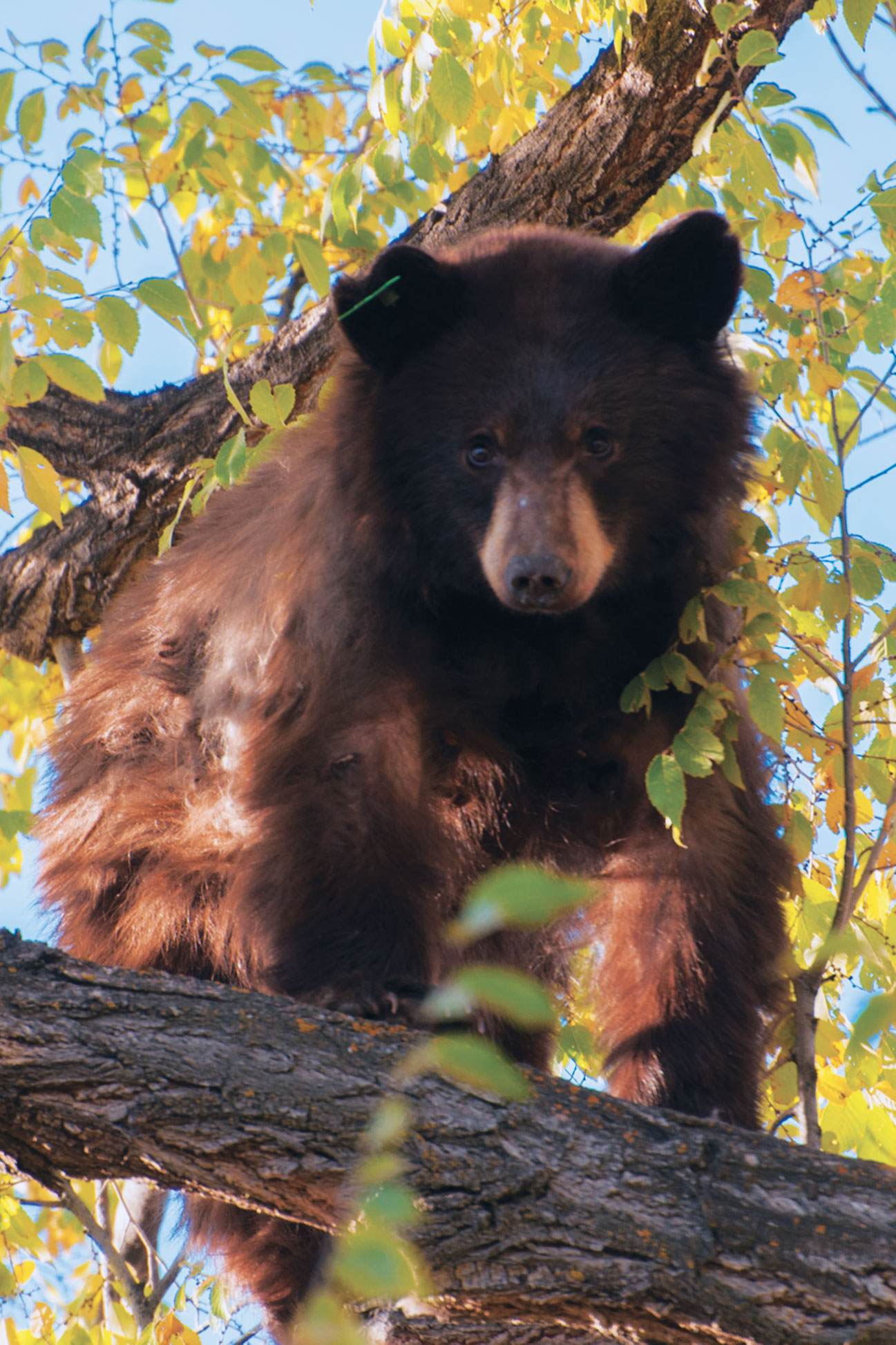Calls to Tribal Wildlife about black bears have begun early this year. It’s too early for acorns and choke cherries to ripen so some bears have begun to venture into Ignacio and surrounding areas. Unfortunately, human food sources can often become an easy meal for black bears during this time.
Black bears that habitually receive food from human sources often become used to close contact with people and begin to lose their natural fear of people. While they may look cute and cuddly, a black bear can turn aggressive unexpectedly and can be very dangerous to people.
The most effective method to avoid black bear encounters and to reduce the incidence of bears visiting residential areas is to remove any potential food or attractant available to them.
Store trash until the morning of scheduled pick-up in a secure container, preferably inside a garage or shed.
Additionally, we ask people to store pet food indoors and pick up any uneaten pet food remaining in dishes in the evening. Remove bird feeders each evening. Also, store barbecue grills out of reach and clean up any spilled grease.
It is important to remove all potential sources of black bear food from residential areas. In the absence of human food sources, black bears will almost always look elsewhere for food, hopefully utilizing natural sources.
The Southern Ute Division of Wildlife Resource Management believes in removing attractants prior to taking steps to remove a bear.
If attractants aren’t removed then another bear, or other wildlife, will likely continue to take advantage of the source. The Wildlife Division does have the ability to trap and relocate nuisance bears, but this is treated as a last-resort option and only if all prevention measures have been tried.
If you see a black bear
If you see a black bear from a distance, it is important that you not approach it. If a close encounter occurs, some general guidelines to follow are:
- Stay Calm.
- Stop and back away slowly while facing the bear.
- Avoid direct eye contact. Direct eye contact may be perceived as threatening by a black bear.
- Speak softly to identify yourself as a human and to show that you are not a threat to the bear.
- Fight back if the bear attacks.
If you have questions or for more information, please contact the Southern Ute Division of Wildlife Resource Management at 970-563-0130.
To report black bear encounters contact one of the following:
- Southern Ute Division of Wildlife Resource Management: 970-563-0130
- Southern Ute Tribal Rangers: 970-563-0133
- Southern Ute Dispatch: 970-563-4401

